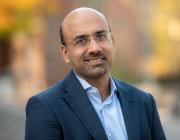There is a quiet revolution that is changing Pakistan’s landscape. Women are beating men at a rate we have never seen before. And there are some men who just cannot take this. The beating I am referring to is in the academic arena over the past 30 years.
There has been remarkable growth in girls’ intermediate (11th/12th grade) enrollment as reported in a new study by Tahir Andrabi and Niharika Singh. There were less than half as many girls as boys enrolled in intermediate in 1985. However, by 2013 there were more girls than boys enrolled in intermediate. Similarly, while girls made up only 20% of science students in 1985, they represent close to 50% of science students today. In fields like medicine, girls outnumber boys two to one.
Girls are also outscoring boys by a wide margin. For example, girls were thirty three percent more likely to receive an “A-plus” in their intermediate exam in 2013 compared to boys.The success of Pakistani women is not limited to exams alone. There are three Pakistanis who have won the coveted Mccarthur “genius award”. All are women: a physicist, a historian and an artist. The most recent Pakistani Nobel laureate is a woman who fought for girls’ education. The only Oscar winner from Pakistan is a woman who has won the award twice.
The point is that the ascent of women in education represents a tremendous demographic shift for Pakistan. Women are now more educated than ever before and more confident in seeking greater political rights. It is perhaps this demographic shift that convinced the Punjab government to introduce the women’s protection bill recently.
However, the rise of women and calls for greater recognition of their rights has threatened old patriarchal structures. In particular, religious parties stand in unison against any effort to further women’s rights. Their chief weapon in this fight is Maulana Sherani who heads the powerful Council of Islamic Ideology in Pakistan.
Mr. Sherani’s constitutional stature is that of an esteemed advisor, a wise sage whose advice must be sought on all complex legal matters. Last week he essentially re-defined marriage as enslavement of women by ruling that a husband can “lightly beat his wife if she defies his commands”. Any half-decent man would revolt at the idea of beating a woman - lightly or not. But in the chambers of Pakistan’s most esteemed consultative body, half-decency is too much to ask.
However, there is hope in the swelling of the ranks of educated women. We may have reached a tipping point where it is no longer that easy to push over women. The politicians may find it hard to ignore the voice of millions of educated women. These women are not going to take any “light beating” lightly.
While women’s rights is foremost a moral issue, it is equally important for Pakistan’s economic survival. Pakistan cannot grow if it continues to push its women in the background. The most critical input for sustained economic growth of a country is the quality of its human capital, and Pakistani women have proven to be more competent than men. Whether women choose to work at home or in the office, their contribution to economic development is as important as men’s.
I know of no developed country that has achieved economic success despite imposing the kind of restrictions on women that Mr. Sherani proposes. However, the good news is that Pakistan’s women are stronger than ever, and as that girl who fought off the Taliban reminded us, “the power of the voice of women frightens them”.

